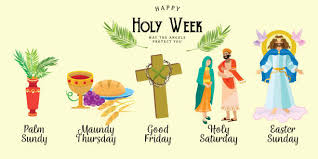Understanding Easter Friday: Origins and Celebrations

Introduction
Easter Friday, often referred to as Good Friday, holds significant importance in the Christian calendar. It commemorates the crucifixion of Jesus Christ, marking a day of mourning and reflection for many believers. Understanding this solemn observance is essential as it not only shapes the Easter celebrations that follow but also highlights the values of sacrifice and redemption central to Christianity.
The Significance of Easter Friday
Known for its deep religious connotations, Easter Friday is observed during Holy Week, falling two days before Easter Sunday. Many Christians attend church services, where the Passion of Christ is read aloud, often followed by prayers and hymns. In addition to its religious aspect, the day serves as a reminder of the sacrifices made for humanity’s salvation.
Traditions and Celebrations
Rituals associated with Easter Friday vary across cultures. In the UK, it is traditional to abstain from meat, leading to the consumption of fish. Some families enjoy fish and chips as a popular meal on this day. In Catholic and some Protestant denominations, the Stations of the Cross – a series of images depicting Christ’s final hours – are observed, allowing participants to meditate on the suffering of Jesus.
Easter Friday Around the World
Globally, the significance of Easter Friday resonates through multiple cultures. For instance, in several Latin American countries, processions are held, with locals participating in elaborate reenactments of the passion. Meanwhile, in Ethiopia, Good Friday, called “Fasika,” is marked by fasting and attending church services that can last for several hours.
Conclusion
Easter Friday remains an observance that bridges faith, community, and tradition. As it precedes the Easter celebrations, it sets a tone of reflection and anticipation, reminding believers of the larger message of hope. Looking ahead, as communities around the world come together to mark this day, understanding its significance can foster greater appreciation of its diverse observances. Recognising the rich tapestry of traditions associated with Easter Friday helps illuminate the never-ending impact of Christianity on cultural practices globally.









